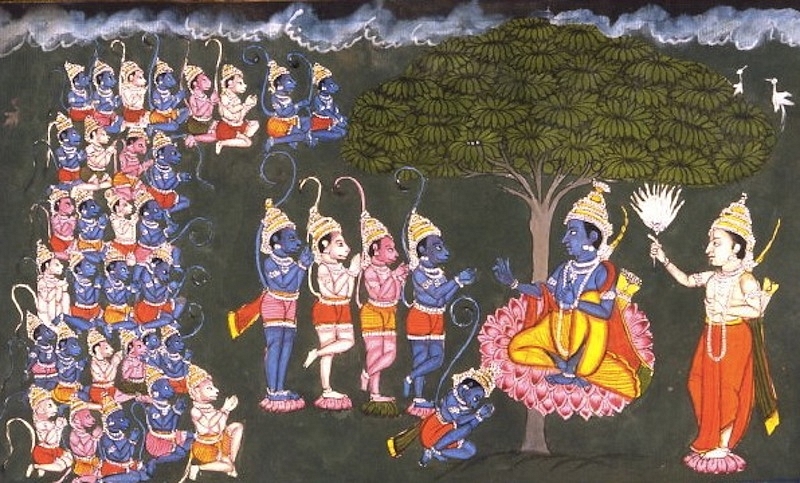Culture
Ram Navami: The Appeal Of A Humble And Righteous Hero
- Reflections on the eternal appeal of Ram on Ram Navami

Source: Wikimedia Commons
There are few characters in Hindu mythology which are as endearing as Ram. Brave and compassionate, duty-bound and obedient, heroic yet humble, righteous and noble, king of the masses, Ram symbolises the highest a man can aspire for in virtuosity and decorousness. Goswami Tulsidas aptly describes him as Maryada Purushottam- pinnacle of dignity among men. Maharshi Valmiki calls him an ocean in calmness and someone towering above Himalayas in persona.
Legend of the Lord - Ramayana- is not just an epic. It is for many who do not want to be laboured by esoteric philosophies and arcane texts, a final word on Dharma. Valmiki writes “Raamo Vigrahavaana Dharma, Saadhu Satya Parakramahi, Raaja Sarvasya Lokaasya, Devaanaamih Vaasavah”, meaning “Ram is the embodiment of righteousness, a saint with truth as his valour and king of this entire world”.
A son’s duty to his father, a disciple’s towards his teacher, a king’s to his subjects or a husband’s to his wife, in his various roles, a lay Hindu looks up to Ram as his model. A mother covets a son like him, a wife, a husband like him and a brother, a brother like him.
Extolled in the richest of prose, it isn’t his dark and handsome attributes or foisted divinity but primarily the ideals practiced, which continue to fascinate multitudes to Ram. “Ramo dwir naabhibhaashate”- once a word is given by Ram, it is final and requires no repetition. “Lakshmi chandraat apeyaadwaa himavaan vaa himam tyajet, Ateeyaat saagaro velaam na pratijnaamaham pituh” He assures Bharat that “Beauty may leave moon, Himavaan might be devoid of snow, oceans may stray from the shores but I will not renege on the promise given to father.”
It isn’t just the story of trials and tribulations of fourteen years in banishment or the arduous battle in Lanka but the abandonment of all pleasure, a normal life could bestow. Youth abandoned to teachers and sages, kingdom to honour father’s promise, marital bliss to public cynicism, Ram’s life, in the line of duties, is so miserable and full of sorrows all through that there are some Vaishnav traditions which limit the recital of Ramayana to just Baal Kaand. Because that is the only joyful part of his life.
One of the most interesting aspects of Ram’s character is his remarkable forbearance. His three day long prayers requesting the Sea God to amicably part and give way is quite a remark as to the kind of people who should be possessing power or bearing arms. It is a reminder about the need for restraint expected from powerful.
Ram also stood for a kingdom’s responsibilities towards subjects and did not take them to be mere spring boards for expansionism. After winning the battles, he restores Kishkindha and Lanka to the natives despite being offered to reign. And on his return to Ayodhya, he presides over a fair, just and blissful Ram Rajya. This Ram Navami let us pledge to revive the spirit of Ram in us and pray for the return of that state.
Introducing ElectionsHQ + 50 Ground Reports Project
The 2024 elections might seem easy to guess, but there are some important questions that shouldn't be missed.
Do freebies still sway voters? Do people prioritise infrastructure when voting? How will Punjab vote?
The answers to these questions provide great insights into where we, as a country, are headed in the years to come.
Swarajya is starting a project with an aim to do 50 solid ground stories and a smart commentary service on WhatsApp, a one-of-a-kind. We'd love your support during this election season.
Click below to contribute.
Latest